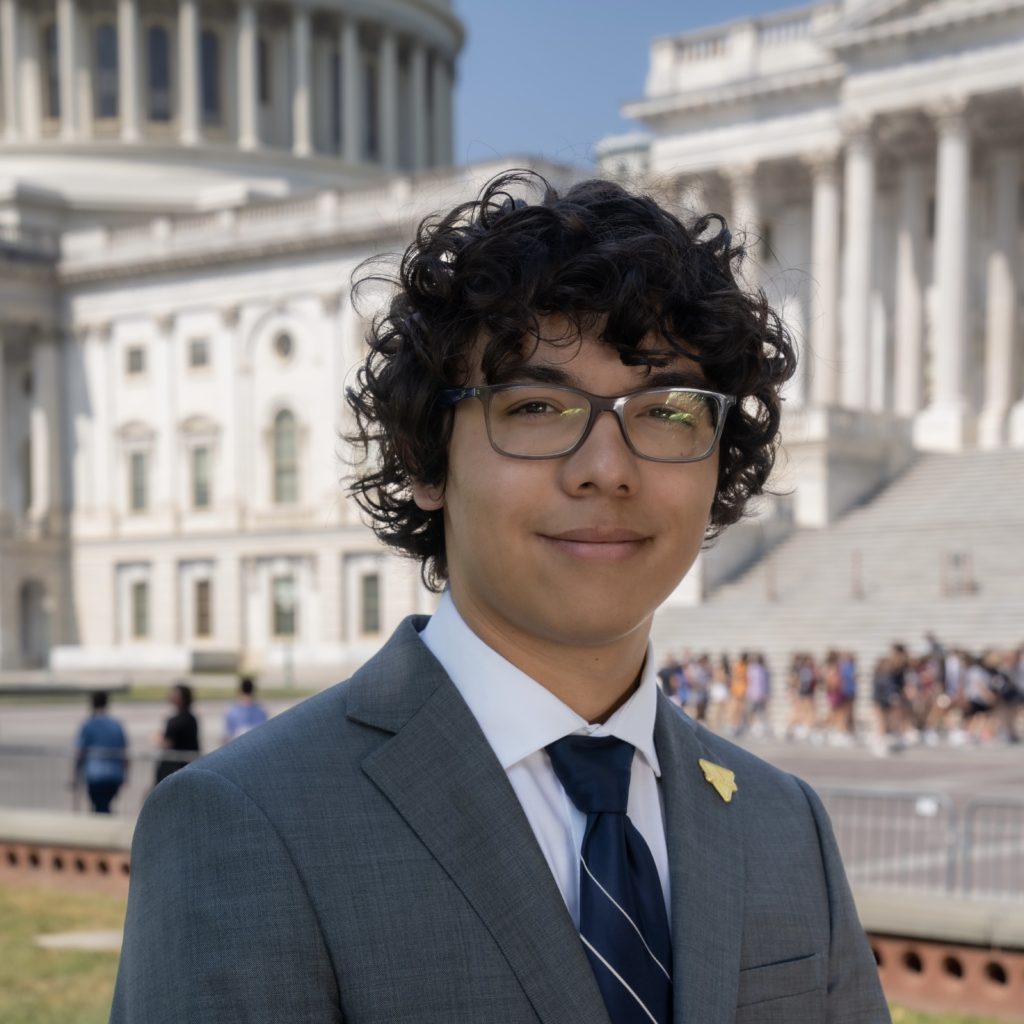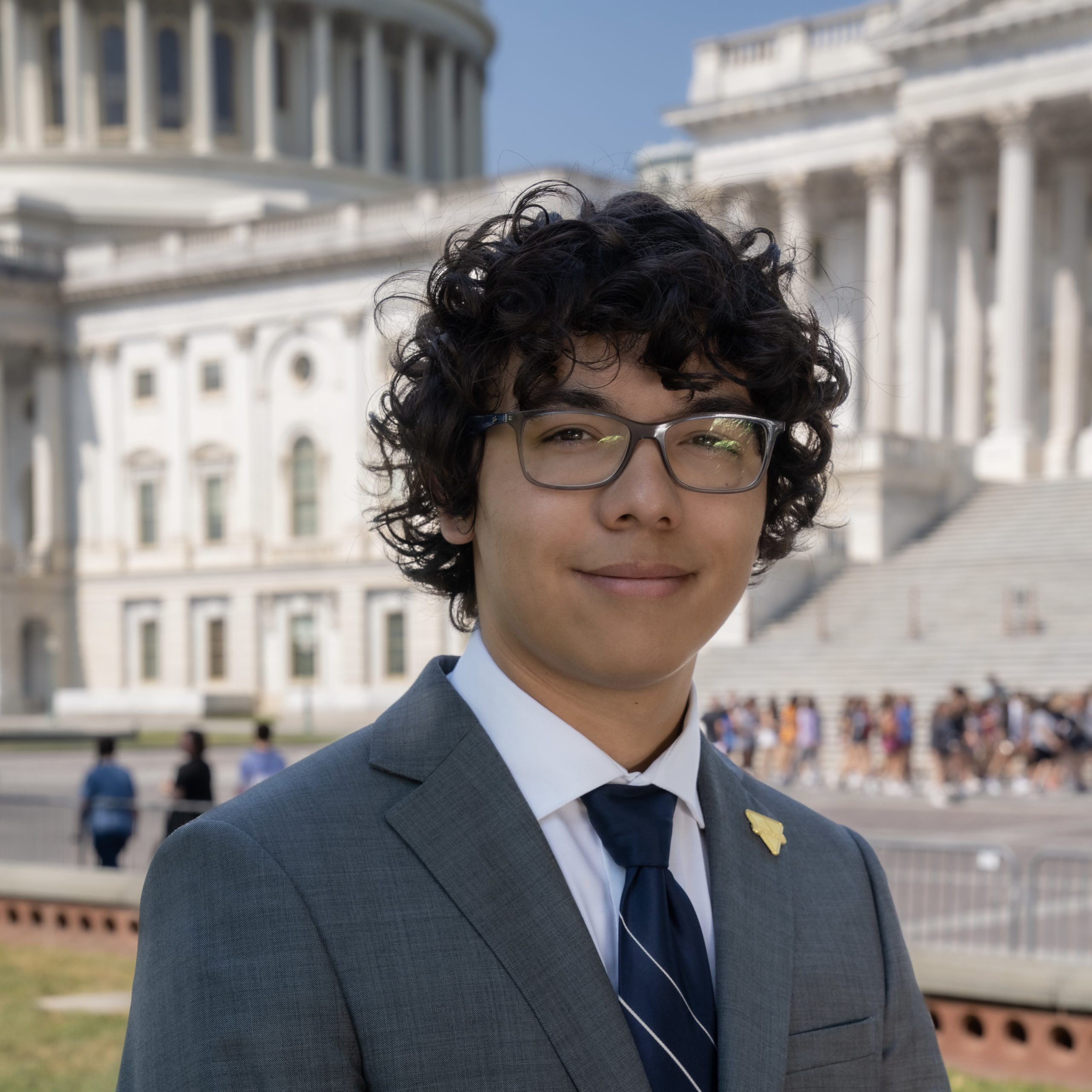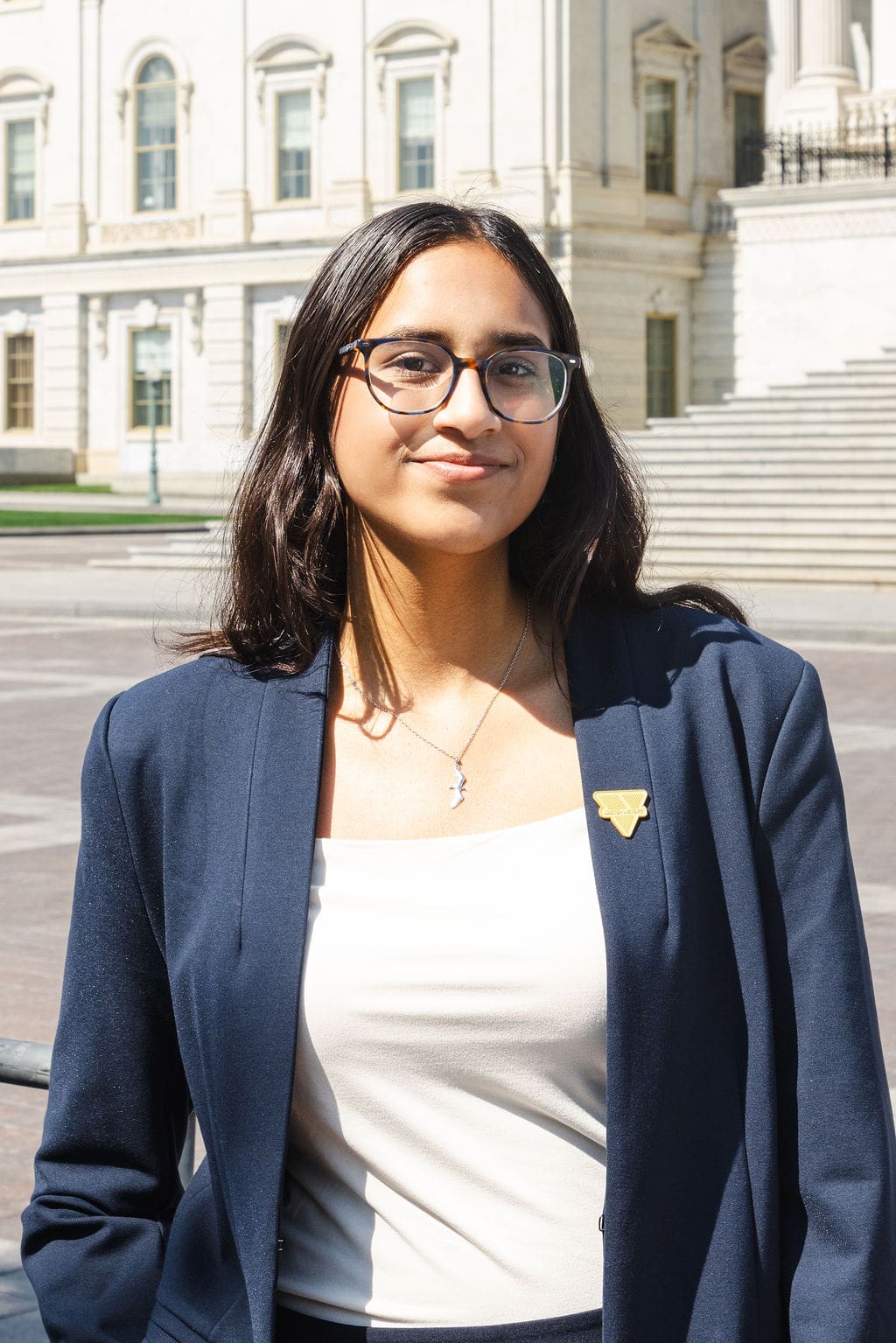
OUT ON THE HILL is the official blog of the Victory Congressional Interns. Views expressed do not necessarily reflect those of LGBTQ+ Victory Institute. Learn more about the internship at victoryinstitute.org/vci.
———————————–
This past few weeks, I have been thinking about careers. I’m soon going to graduate from university, and I am trying to figure out what I want to do professionally and where I think I can make a difference. As I walk the halls of Congress, I continuously think to myself, is this career for me? Can I make a real difference here? What values are most important to me? Can I live these values in this role? Could I do this full-time? Is this sustainable?
What I know for certain is that I want to do work where I can make a difference and make the 8-year-old me proud.
So what does it take to make real progress for the LGBTQ community? It’s not just about protesting – it’s about finding ways, big and small, to make a difference in every field, from politics, tech, sports, business, and education, to name a few; I want to challenge you to think of how you can make an impact.
My name is Zach Koung. I am a rising senior, an LGBTQ organizer, and a former member of the Howard County Board of Education. I want to share with you my story and ways that I found I could have an impact in supporting the Queer community.
I grew up in a conservative religious household. My dad is an immigrant from Cambodia, and my mom was born here and raised Catholic. My parents did not, or rather, could not understand me.
At first, education was my escape. School was where I could just be me; that changed as the bullying started in late elementary school, where students would pull at the edges of their eyes and say something racist about Asian names and later progressed to racial slurs and then an anti-gay slur. I knew what it felt like to not feel loved, safe, included, and supported and to have to hide who I really was. I remember church leaders openly demeaning the LGBTQ community. I felt like something was wrong with me.
Like many of you, I wanted to make a change from inclusive hiring practices to inclusive curricula in schools. I ran for student government but wanted to do more than plan the homecoming. In my sophomore year, I represented my school at a primary convention for the next Student Member of the Board of Education. A few states across the country outline processes to have a student representative on their school boards; however, in my home state, Maryland, student representation goes a bit further. In several counties, including mine, Howard County, just like the adult board members, the Student Member on the Board of Education has a vote that counts on the vast majority of issues. At the primary convention, I felt like the conversations we were having were not going far enough in addressing the needs of students, from access to an inclusive curriculum that affirms and values students for who they are, access to a financial literacy curriculum that prepares them for post-high school success, and to combatting the mental health epidemic plaguing the nations schools long before COVID-19.
I’m proud of my work while on the board. While on the school board, I championed racial justice and LGBTQ-inclusive education. I read a proclamation recognizing LGBTQ history month. I passed a motion developing a financial literacy course.
Data shows school curriculum should be both windows and mirrors—windows showing you identities that are not personal to us, and at the same time, mirrors that reflect our own identities. Data shows that LGBTQ students who attend schools with a curriculum inclusive of LGBTQ people, history, and events experience a better school climate and improved academic outcomes. Some people frame LGBTQ inclusive curriculum as divisive, wishy-washy feel-good fluff, but it’s not. An inclusive curriculum is a data-driven approach that saves lives. After dozens of hours of meetings, months of planning, and phone calls with Board members and staff, I made a motion that was unanimously supported by all eight board members and the superintendent to develop an LGBTQ studies course, making the district among the first in the nation to teach such a course.
While I decided to run for the school board, it definitely isn’t for everyone. Honestly, I’m not sure I’d ever do it again. No matter where you live and what you do for work, you can make real progress for the LGBTQ community. There are so many ways to impact and make a difference to the millions of other queer people across the globe who continue to feel left behind and not represented.
- Working in tech to find ways to reach and support LGBTQ kids in places where they don’t have resources is real progress.
- Volunteering your time to mentor and support LGBTQ people is real progress.
- Implementing inclusive hiring practices at work that ensure LGBTQ individuals are supported is real progress.
- Making sure that the LGBTQ people in your life feel supported and know that they are loved is real progress.
- Something as simple as getting your coworkers to use pronouns in their email signatures is real progress.
LGBTQ people continue to be underrepresented in politics, business, sports, law, education, research, engineering, tech, film, media, and practically every other field. Nearly 20% of Gen Z identifies as LGBTQ, and despite our growing presence in the population, less than 1% of Fortune 500 CEOs, less than 3% of congresspeople, and less than 1% of professional sports players are openly LGBTQ.
Being an out LGBTQ person makes invaluable progress for other LGBTQ kids who did not see people like them in the fields they want to go into. Imagine how different it would be for you if you grew up with an out LGBTQ teacher or an out LGBTQ mentor, or more than just a handful of LGBTQ icons that you could look up to.
Remember, progress is not just about moving mountains; it’s about making the world a better place for just one more queer kid.


